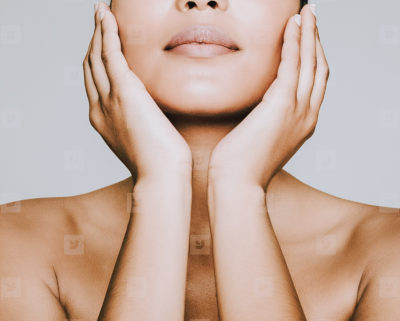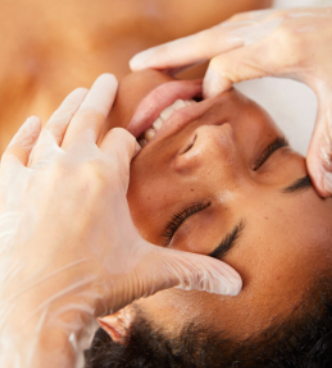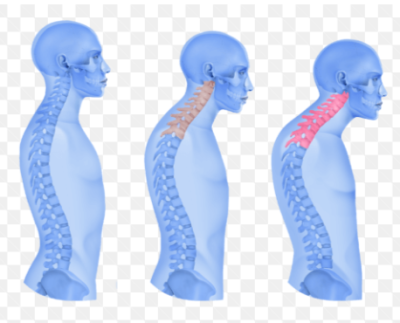 Dr. Sophie Bostock has always been intrigued by why what makes us feel good and function well. She studied medicine at Nottingham University, followed by an MSc in Entrepreneurship. After several years in consulting, she completed a PhD in Health Psychology at University College London (UCL), investigating why happiness protects against heart disease, and how to improve wellbeing at work.
Dr. Sophie Bostock has always been intrigued by why what makes us feel good and function well. She studied medicine at Nottingham University, followed by an MSc in Entrepreneurship. After several years in consulting, she completed a PhD in Health Psychology at University College London (UCL), investigating why happiness protects against heart disease, and how to improve wellbeing at work.
Sophie’s research pointed to sleep an unsung hero of mental and physical resilience. She spent the next 5 years working on Sleepio, Big Health’s award-winning digital sleep improvement programme, first as a research scientist, then UK Innovation Lead. She has published research in collaboration with the Sleep and Circadian Neuroscience Institute in Oxford, and international researchers, demonstrating the impacts of better sleep on mental health and performance.
Sophie became a passionate advocate for the importance of sleep, as evidence-based therapy. Sophie was awarded an NHS Innovation Accelerator Fellowship in 2016, and successfully helped to make Sleepio available on the NHS to a fifth of the UK population. Sophie has been invited to deliver talks for Tedx and Talks at Google, and regularly features as a sleep expert in national media.
Sophie now works as an independent Sleep Evangelist. When not sleeping, eating, rowing, climbing, swimming or windsurfing, she provides keynote conference talks, consultancy and coaching for teams and individuals interested in improving their sleep patterns to boost wellbeing and performance.
Head to www.thesleepscientist.com for more information on how to book Sophie.
What prompted your interest in sleep and made that a key focus of your work?
I’ve always been interested in how to help people feel better, more of the time. I studied medicine at university, but neglected my sleep horrendously. Doctors still get very little training in sleep medicine. My PhD investigated the links between stress, happiness and heart disease – it was only then that I started to appreciate that sleep underpins it all… our perceptions of stress, our moods and our physical health. I’ve spent the last 7 years championing the importance of sleep because it’s so critical to wellbeing, easy to change, and yet not widely understood.
 You often hear that 8 hours is the optimum amount of sleep needed, but some people seem to exist perfectly well on 6 hours and get up easily, whilst others don’t feel refreshed after 9- are everyone’s needs different?
You often hear that 8 hours is the optimum amount of sleep needed, but some people seem to exist perfectly well on 6 hours and get up easily, whilst others don’t feel refreshed after 9- are everyone’s needs different?
A review of hundreds of scientific studies concluded that 7 hours is the minimum that most adults need for optimal health, but as with any biological characteristic, there is a lot of natural variation. If you’re waking up routinely without an alarm clock, you don’t feel sleepy during the day, you’re not relying on caffeine or sugar to pep you up and you don’t sleep in at weekends.. your sleep is probably in good shape! If not, it’s worth experimenting to see whether an extra 20-30 minutes of sleep each night makes a difference.
What is the impact on our cells and what would you say is the most significant consequence of regularly not getting enough sleep?
Every cell in our bodies operates on a 24 hour cycle of activity and recovery. We rely on sleep to restore not only our physical energy levels, but to repair damaged tissue, build up our immune defences and reduce levels of stress hormones. Sleep deprivation affects every system in the body, but a lot of recent research points to a critical role for sleep in maintaining a healthy brain. Each night, during deep sleep, the gaps between the brain cells widen, allowing for more circulation of cerebrospinal fluid. This allows the flushing of toxic proteins, including beta amyloid and tau – a build up of which is implicated in dementia and Alzheimer’s disease.
We’ve heard that the hours of sleep you get before midnight are more valuable than those afterwards, is this true?
It’s true that our sleep cycles change through the night. In the first part of the night we get more deep sleep, or slow wave sleep, which is critical for restoring physical energy levels, learning and memory. In the second part of the night, we have more REM (rapid eye movement) sleep, which is associated with dreaming. REM sleep is important for processing emotions, especially negative emotions, often allowing us to wake up feeling more optimistic than when we went to sleep.
 Tiredness and lack of sleep is so visible on our faces- why is there such a direct and immediate correlation?
Tiredness and lack of sleep is so visible on our faces- why is there such a direct and immediate correlation?
Research has shown that we’re very good at detecting fatigue on others’ faces. Even subconsciously we can pick up on bags under the eyes and pale skin. Interestingly, we tend to find tired faces less physically attractive, perhaps because from an evolutionary perspective, sufficient sleep is associated with higher performance.
Even one night of sleep deprivation appears to affect collagen growth, skin hydration and skin texture. Lack of sleep promotes an increase in stress hormones and inflammation, which can increase acne, eczema, psoriasis, and skin allergies. Over time, greater exposure to stress hormones can accelerate the production of enzymes which break down collagen, causing less elasticity, more wrinkles and thinner skin.
Is it possible to ‘catch up’ on sleep with extra hours the following night, or does a standard night of sleep reset the deficit?
With every night of poor sleep, our performance the next day will be affected – it adds up over the week, causing a ‘sleep debt’. We don’t have to catch up for every moment of missed sleep, hour by hour. If you have a really poor night of sleep, the brain is quite good at increasing the quality of your sleep the next night – a rough estimate is we may only need to pay back a third of our sleep debt.
Following on from the last question, we’ve heard that lying in at the weekend isn’t the best idea as it is best to keep your body clock and routine consistent, is this true?
Spot on. Our body clocks thrive on routine. If we stick to the same wake up times, we’ll feel sleepy at the same time each night. Our bodies learn to anticipate these patterns. If we shift our wake patterns by more than an hour at a time, the body gets confused.. Our body clocks get out of sync, which effectively means that we give ourselves jetlag every Monday morning.
Getting up as soon as the alarm goes off can feel like a real shock to the system, but is snoozing your alarm a mistake?
If you’re protecting enough time for sleep, and getting up at the same time each day, you’ll start to wake up before your alarm, feeling refreshed. If you routinely reach for the snooze button, it’s a good indicator that you may benefit from more sleep. Your ‘snooze’ sleep is so short that it has limited restorative value, and you’re subjecting yourself to multiple stressful alarm calls, which may add to a feeling fatigued. Leave your alarm clock on the other side of the room – as soon as you get the body moving, you’ll start to feel more alert.
How much sleep do you get, and what is your sleep hygiene routine?
After a history of sleep-deprived mistakes, including a nasty climbing accident, I now have a healthy respect for sleep. I’m usually in bed between 10 and 10:30am. I read until I start to feel sleepy (usually only for a few minutes) and then I usually wake up before my alarm, between 6 and 6:30am. If I know I’ve had a stressful day, I’ll have a warm bath or shower an hour before bed. I find this really relaxing, and the body cooling as you get out encourages the body to get ready for sleep.
 Where is the most unusual place you’ve spent the night?!
Where is the most unusual place you’ve spent the night?!
Two years ago, I took part in a 30km swim trek in Morocco. We spent one night camped out under the stars in the Sahara desert. That was pretty spectacular. I’ve never seen so many stars. After a long swim and no electric light, I slept incredibly well!
Why become a member of Luminous?
Subscribing to Luminous will give you access to a wealth of curated tutorials and routines to help teach you to lift and tone every part of your face. You can filter by face part to target specific areas, or try the full routines. We add new techniques and routines to the site regularly as it is important to mix up the exercises you do to keep your muscles challenged.
We do bi-monthly online live classes which will help keep you motivated as well as ensuring you are doing the techniques correctly.
Head to the ‘Become a Member‘ page to learn more about the benefits and cost of membership!













